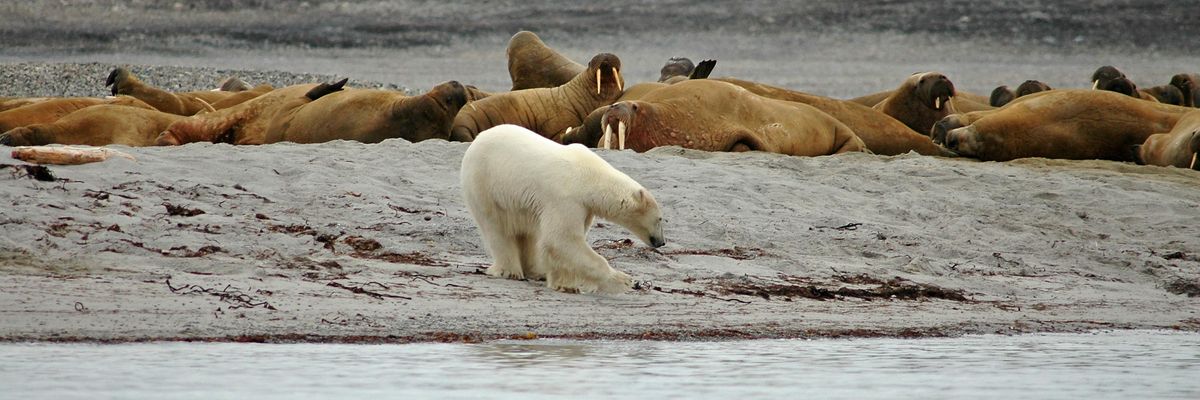Increasingly dire ecological damage and severe impacts of the climate crisis are pushing the natural world towards a mass extinction event unparalleled since the age of the dinosaurs, conservationists in Germany warned this week, with humanity possibly facing self-annihilation if behaviors do not change.
Releasing its annual "Winners and Losers" list on Wednesday, the World Wildlife Fund's German branch said 40,000 of the 142,500 species listed on the Red List of Threatened Species by the International Union for Conservation of Nature (IUCN) are "threatened with extinction."
"If the earth is sick, so will the people [be], because we depend on vital ecosystems and biodiversity for our own safe and healthy life."
The Red List is now longer than it has ever been since the IUCN began cataloging threatened species in 1964.
More than 40% of amphibians, 27% of shark and ray species, a third of reef building corals, and more than a quarter of all mammals on the Red List are threatened with extinction.
At the current rate of species loss, "around one million species could go extinct within the next decade--which would be the largest mass extinction event since the end of the dinosaur age," WWF Germany said in a statement.
With planet-heating atmospheric carbon dioxide emissions reaching a record high this year--contributing to drought, habitat loss, extreme weather, and health problems in humans as well as other species--the organization noted that humans should view the extinction crisis as one that could affect them directly.
"Species conservation is no longer just about defeating an environmental problem, but is rather about the question of whether or not humanity will eventually end up on the Red List in an endangered category--and thereby become a victim of its own lifestyle," WWF Germany director Eberhard Brandes said.
"If the earth is sick, so will the people [be]," he added, "because we depend on vital ecosystems and biodiversity for our own safe and healthy life."
The "losers" on the WWF's list include the polar bear, which is already suffering from the erosion of its Arctic habitat as the northern region becomes warmer. The Arctic Ocean could be completely free of ice by 2035 at the current rate of loss, making it increasingly difficult for the bears to find food.
Sharks and rays also made the list, the result of overfishing, habitat loss, and the climate crisis. A third of all sharks and rays in the oceans were classified as threatened in 2021, the WWF said.
African forest elephants have been considered "critically endangered" for the first time this year, as their population in Central and West Africa has plummeted by 86% in the past three decades.
The inclusion of 40,000 species on the IUCN's list of threatened species represents a major acceleration of biodiversity loss. In 2010, 17,300 species were considered to be under threat, according toThe Guardian.
The WWF's list of "winners" this year includes bearded vultures, which have benefited from a resettlement program in the last 30 years that's resulted in more than 300 of the birds now living in the Alpine region; the Iberian lynx, whose population has increased more than tenfold in the past 18 years; and Siamese crocodiles in Cambodia. Eight young crocodiles were found by researchers this year, marking the first time in more than a decade that the species has reproduced in nature.
"The winners of the list show that there are still opportunities for species protection," said Brandes. "If we implement effective nature conservation measures, we can protect plants, animals and, ultimately, the climate."

